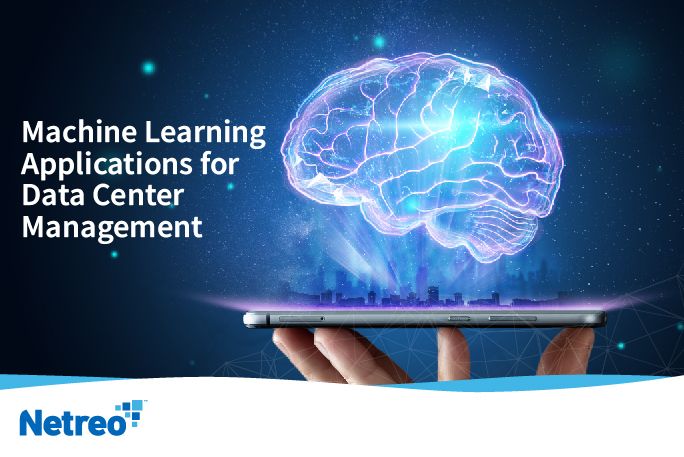
The data center is a remarkably complex structure. However, they are crucial to the everyday running of even the smallest businesses and enterprises. Whether in-house, cloud, or hybrid, the average data center management requires specialist knowledge and meticulous oversight for max efficiency. That is one reason, at least, why machine learning is emerging as an ideal partner for centers of the future.
It is perhaps not too difficult to understand why semi-supervised learning, or complete autonomy, is growing ever more popular. As Google’s Jim Gao posits, learning how to optimize our centers’ data is no simple task. Gao himself oversaw Google’s deep neural networks blueprint to help manage these sprawling, ever-growing processes.
But how might we use AI and machine learning in the data center for the best? What are some of the critical challenges that future applications need to target and overcome?
Security is a concern for data center managers that is never likely to dissipate. While businesses and organizations may work hard to fight against rising malware and ransomware attacks, hackers will always be ahead. Human vigilance and even the most intuitive software can only do so much.
AI, however, can compute and understand incredible levels of data. By design and by comparison, the human brain is only ever able to keep up so much. Ransomware attacks are mainly human in design. That is why data centers using machine learning to anticipate such attacks offer double the protection.
AI has the potential to learn and adapt to human behavior and malware patterns with outstanding efficiency. A neural network or similar may apply adaptive, scalable center defense that evolves with each threat.
A standard, manual task for data center managers is the cooling of their hardware. Data centers process colossal tasks and equations, which our businesses rely on around the clock. By learning from data across multiple insights, artificial intelligence can immediately slow down operations when things heat up.
Google is another crucial example we can learn from in this regard. Reportedly, the company was able to reduce data center cooling exertion by up to 40%. It managed this, collectively, by designing an AI and learning plan to address 21 different cooling and temperature variables. The more variables there are, the deeper machine learning or artificial intelligence will dive.
Supervised machine learning is perhaps recommendable at the start of a new project. However, arguments exist to suggest that, in the long term, the need for data scientist positions may disappear altogether.
Data scientists’ work revolves around in-depth analysis. Scientists not only collate data but apply it to hypothetical situations. There may be, for example, a constant drive in pursuit of efficiency. However, a machine can address and plan for said efficiency at a fraction of the time exerted.
Arguably, we can already see AI ‘replacing’ much manual data science at the cloud level. Much cloud data science is autonomous. There is zero need for human intervention and maintenance.
Ultimately, this could be the ‘final goal’ of introducing AI and learning into the data center. Human resources not only require regular salaries but are also at risk of making human errors. Removing the risk of either may be very attractive to some applications.

Therefore, let’s consider risk a little deeper. Data center management not only relies on the collecting and processing of information at optimal efficiency. It revolves around ensuring that all hardware and applications are healthy and are working as expected.
Human error, as mentioned above, is a pitfall many will seek to avoid. AI learning, therefore, can adapt to understand when specific systems are at peak capacity. By decluttering and untangling a center’s many pieces, AI can learn more about absolute potential.
Intelligence can then act to close down a piece of hardware or trigger a switch should there be a risk of overheating. Intelligence could also learn how to manage and balance different controls and communications to work efficiently, not at complete burnout.
Even the most talented or experienced data scientists may find it challenging to measure for such events. It is a case of stability, and the ‘steady-state,’ as observed by Dr. Suvojit Ghosh at McMaster University’s CIRC, based in Ontario, Canada.
Artificial learning could help data centers at the base level because it helps make things ‘more efficient’. Based on Dr. Ghosh’s testimony, too, it could help to create max stability. However, according to Huawei’s Zou Xiaoteng, support from AI arrives in multiple stages.
The third stage on Xiaoteng’s ladder, according to DCD, is that AI can and should run completely unattended. Such a mode of operating could replace the need for human analytics, full stop. Xiaoteng hopes that Huawei will be able to auto-recover from data center problems, if they arise, in the future.
Now, however, many businesses may be at the second rung of Xiaoteng’s ladder. In this stage of evolution where artificial neural networks and more are learning from data with assistance. This level is perhaps known as semi-supervised learning in some quarters. AI and automated learning are still very new concepts to small-to-medium enterprises.
There are many examples of reinforcement learning and supervised learning from data out in the real world. Key examples may be an AI driving car or home assistants, which operate on speech recognition.
Of course, the argument is that to reach rung three, they will still need human support. Arguably, companies may choose to scale back to rungs two and one, should any later regression be required.
Machine learning is permeating our daily lives. Therefore, it is understandable that it will eventually help us automate our data center management in the long term. Big data can cause significant problems when human error and fatigue are in play. Therefore, AI center management has the potential to bring inspiring efficiency standards on a global scale.
–
If you’d like to learn more about how Netreo can help you improve your data center management, request a demo to speak with one of our engineers.